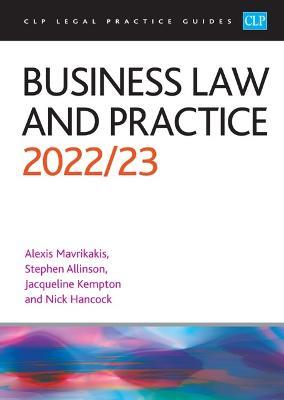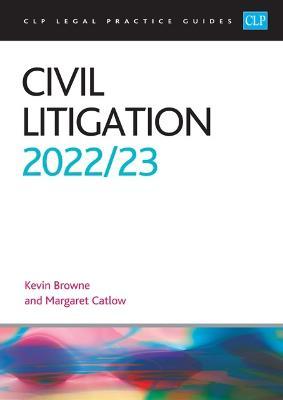🔴 DEFINITION: For the purposes of the Solicitors Qualifying Examination One (SQE1), Functioning Legal Knowledge means:
- Knowledge of the law of England and Wales required to practise competently as a solicitor, without reference to books or notes.
- Law assessed as it stands at the cut-off date (inclusive), being four calendar months prior to the date of the first assessment in the relevant assessment window, as determined for each exam sitting.
- Legal knowledge that is functional, in that it is tested through the application of legal principles to factual scenarios of the kind that may arise in practice.
- The ability to apply fundamental legal principles and rules appropriately and effectively at the level expected of a competent newly qualified solicitor.
- Knowledge focused on core principles and rules, and not on matters of detailed reference that a newly qualified solicitor would reasonably be expected to look up in practice.
- Assessed using single best answer multiple-choice questions, each with five possible answers, of which only one is correct.
- FLK1: (1) Business Law and Practice; (2) Dispute Resolution; (3) Contract Law; (4) Tort; (5) Legal System of England and Wales; Constitutional and Administrative Law and EU Law (collectively referred to as ‘Legal System’) and (6) Legal Services.
- Weakest Areas: Business Law & Practice, Dispute Resolution
The table below includes a downloadable SQE syllabus for each of the subject areas in PDF format. This will be a helpful guide for you as you study and revise the law in preparation for the SQE assessments, specifically covering the SQE1 subjects.
⚠️ Important Notice About This Syllabus Download
Please note: The detailed SQE1 and SQE2 syllabuses provided here are for study support purposes only. They are based on the below SQE1 Assessment Specification. These downloads are supplementary learning aids and should not be relied upon as a substitute for the official SRA guidance. Check the current SRA assessment specifications!
📌 View the official SQE1 Assessment Specification (from 1 Sept 2025)
📌 View the official SQE2 Assessment Specification (from 1 Sept 2024)
These syllabi will be emailed to you — provided you subscribe to our email list. We send updates no more than once a month (if at all), and only when there are new versions available.
FLK1
SQE Prep & Practise (OUP)
Oxford University Press (OUP) has developed the online SQE Prep & Practise products that are a fully fledged learning platform rather than a traditional set of manuals. The content of the SQE Prep & Practise for Assessment 1 fully reflects the content of the SQE1 FLK1 assessment. In addition to study materials, this resource offers 200 MCQs for each subject, as well as performance-based explanatory feedback.
A separate chapter in the SQE Prep & Practise deals with ethics and professional conduct – that are assessed pervasively across the SQE1.
The SQE Prep & Practise can be purchased separately for Assessment 1 and Assessment 2, or as a complete package. The SQE Prep & Practise: Complete (£450 for 12 months’ access) includes six online manuals covering all SQE1 subjects, exam techniques, and a comprehensive bank of 1,200 sample questions designed to mirror the actual SQE1 format. This series of revision guides is available in both printed and electronic formats, providing concise and focused content that aids in the revision process.
Business Law & Practice
Manual, J. Scott Slorach & Jason Ellis
Questions, J. Scott Slorach & Claire Lawrence
Dispute Resolution in Contract & Tort
Manual, Helen Tinkler, David Amos & Edward Iredale
Questions, Helen Tinkler
Public Law, Legal Services & the Legal System
Manual, Alan Reid, Elizabeth Smart, Gillian Pastuch & Roiya Hodgson
Questions, Cath Neary, David Rees, Marsha Francis, Sally Ireland, Elizabeth Polding & Claire Lawrence
Ethics & Professional Conduct
Pervasive chapter, Roiya Hodgson
Pervasive questions, Marsha Francis, as well as David Rees, Rebecca Crump, Claire Lawrence, Helen Tinkler and Elizabeth Polding
Exam Technique
Pervasive chapter, Helen Tinkler, with worked examples by Claire Lawrence & David Rees

SQE Study Manuals from the University of Law
The SQE Study Manuals from the University of Law are essential resources for SQE1 preparation. One of the main benefits of purchasing UCL SQE books is the permanent access they provide, as these hardcopy manuals have no expiration date. Available in various bundles, the largest set includes 15 manuals and is priced at £515.
In addition to the manuals, UCL offers approximately 600 multiple-choice questions (MCQs), which can be accessed via a QR code included with the books.
The UCL SQE Study Manuals can be purchased individually, as bundles for SQE1 FLK1, or as bundles for SQE1 FLK2. Each manual is available for £42.99 when bought separately.
- Business Law and Practice
- Dispute Resolution
- Contract
- Tort
- Legal System of England and Wales
- Constitutional and Administrative Law and EU Law
- Legal Services
- Ethics and Professional Conduct

LPC/QLTS Books
There are two main publishers: Oxford University Press (OUP) and College of Law Publishing (CLP). They offer other helpful resources that can also be used in preparation for the SQE1 FLK1 assessment. These are concise and comprehensive law books explaining each of the SQE1 subject areas assessed. These manuals are at the heart of the LPC preparation, and used to play a major role in preparing for the QLTS OSCE. Please see the LPC/QLTS manuals in the table below:
Part 1: Partnerships
1:Characteristics of partnerships
2:Partnership management and finance
3:Liability of partners to outsiders
4:Partnership disputes
5:Termination of and retirement from a partnership
6:The partnership agreement
Part 2: Companies
7:Limited companies
8:Formation of a limited company
9:Directors and secretary
10:Shareholders
11:Company finance
12:Disposal of shares
13:Company meetings and resolutions
14:The articles of a private company
15:Disclosure obligations of companies and company accounts
16:Public companies
Part 3: Taxation
17:Income tax: sole traders and partnerships
18:The corporation tax system
19:Taxation of directors’ fees and employees’ salaries
20:Taxation of distributions and debenture interest
21:Capital allowances
22:Capital gains tax and inheritance tax on business assets
23:Value Added Tax
Part 4: Insolvency
24:Personal bankruptcy
25:Company insolvency proceedings
26:Liabilities arising from insolvency
Part 5: Additional Topics
27:Choice of business medium
28:Limited Liability Partnerships
29:Sale of a business to a company
30:Shareholders’ agreements

Starting a Business
The Different Types of Business
Introduction to the Company
Running a Business as a Company Limited by Shares
How to Set Up a Company
The Company’s Constitution
The Company’s Shareholders
Officers of the Company
Controls on Directors
Company Decision-making
Financing a Company: Shares
Financing a Company: Debt
Taking Security
Public Companies
Running a Business in Partnership
The Start of a Partnership
The Partnership Agreement
Partners’ Responsibilities
Liability for the Firm’s Debts
Dissolution
Limited Liability Partnerships
Insolvency
Corporate Insolvency
Personal Insolvency
Taxation
Calculation of Trading Profits of a Business
Taxation of Companies: Corporation Tax
Taxation of Companies: Special Provisions Relating To Companies
Taxation of Sole Traders
Taxation of Partnerships
Taxation of Employees and Directors
Taxation of Savings and Investment Income
Business Reliefs from CGT and IHT Available to Individuals
Tax Considerations in Choice of Medium
Conversion
Some Aspects of Trading
Sale of Goods
Employment and Other Regulatory Concerns
Introduction to Agency and Distribution Agreements
Choosing a Marketing Agreement
Competition Law

1:Introduction
Part 1: Formation
2:Agreement: Objective or Subjective?
3:Offer and Acceptance
4:Uncertain and Incomplete Agreements
5:Consideration and Promissory Estoppel
6:Formalities
7:Intention to Create Legal Relations
Part 2: Terms
8:The Terms of Contract
9:Incorporation of Terms
10:Implied Terms
11:The Interpretation of Contracts
12:Boilerplate Clauses
13:Exclusion Clauses
14:Unfair Terms in Consumer Contracts
15:Good Faith
Part 3: Setting the Contract Aside
16:Mistake
17:Misrepresentation
18:Duress
19:Undue Influence
20:Unconscionability and Inequality of Bargaining Power
21:Frustration and Force Majeure
Part 4: Remedies for Breach
22:Breach of Contract and Termination
23:Damages
24:Specific Performance
Part 5:Third Party Rights
25:Third Parties
26:Online Chapter: Incapacity
27:Online Chapter: Illegality

I. Introductory
1:Introduction: the shape of tort law today
II. International Interferences
2:Torts of intention
III. The Tort of Negligence
3:The standard of care in negligence
4:The duty of care: introduction and development
5:Duty of care: applications
6:Causation, remoteness, and scope of duty: connection to the damage
7:Defences to negligence
IV. General Matters
8:Limitation and contribution
9:Damages, compensation, and responsibility
10:Vicarious liability and non-delegable duties
V. Nuisance and Duties Relating to Land
11:Nuisance
12:Rylands v Fletcher and strict liability
13:Occupiers’ liability
VI. Defamation and Privacy
14:Defamation
15:Privacy
VII. Stricter Liabilities
16:Product liability
17:Breach of statutory duty
18:Trespass to land and goods, and conversion

1:Introduction
2:A modern litigation approach
3:Costs information to the client and funding options
4:The nature, extent, and recovery of legal costs
5:Alternative dispute resolution
6:The first client meeting and initial considerations
7:Pre-action substantive matters
8:Pre-action protocols
9:Starting your court action and serving it on the defendant
10:Defending a claim
11:Drafting statements of case
12:Case management
13:Interim applications – general considerations
14:Interim applications – common types
15:Part 36 offers and offers to settle outside part 36
16:Disclosure and inspection
17:Witness statements and documentary evidence
18:Experts and expert evidence
19:Trial, settlement, and appeals
20:Assessment of cost proceedings
Appendix 1: additional chapters (online only)

Introduction to Civil Litigation
Considerations at the First Interview including Funding the Claim
Early Action
Alternative Dispute Resolution
Commencing Proceedings
Responding to Proceedings and Judgment in Default
Statements of Case
Additional Proceedings and Part 8 Claims
Case Management and Allocation of Cases
Applications to the Court
Disclosure and Inspection of Documents
Evidence
Settlement
Final Preparations for Trial, Trial and Assessment of Costs
Enforcement of Money Judgments
Appendices
Court Forms, Protocols and Guidelines
Templates for Drafting Key Documents
Flow Diagrams
Case Study Documents

1:Introduction
Part 1: Formation
2:Agreement: Objective or Subjective?
3:Offer and Acceptance
4:Uncertain and Incomplete Agreements
5:Consideration and Promissory Estoppel
6:Formalities
7:Intention to Create Legal Relations
Part 2: Terms
8:The Terms of Contract
9:Incorporation of Terms
10:Implied Terms
11:The Interpretation of Contracts
12:Boilerplate Clauses
13:Exclusion Clauses
14:Unfair Terms in Consumer Contracts
15:Good Faith
Part 3: Setting the Contract Aside
16:Mistake
17:Misrepresentation
18:Duress
19:Undue Influence
20:Unconscionability and Inequality of Bargaining Power
21:Frustration and Force Majeure
Part 4: Remedies for Breach
22:Breach of Contract and Termination
23:Damages
24:Specific Performance
Part 5:Third Party Rights
25:Third Parties
26:Online Chapter: Incapacity
27:Online Chapter: Illegality

1:Studying the English legal system
2:An overview of the English legal system
3:Legislation and the law-making process
4:The interpretation of statutes
5:The doctrine of judicial precedent
6:The law and the institutions of the European Union
7:Human rights in the United Kingdom
8:The judiciary
9:The legal profession
10:Access to justice
11:The criminal process: the suspect and the police
12:The criminal process: pre-trial and trial
13:The jury
14:Sentencing
15:The civil process
16:Alternative dispute resolution
17:Tribunals
18:Criminal and civil appeals

Revise SQE Series
This is a series of revision guides to substantive law subjects focusing on the topics assessed in the SQE1, each available in both printed and electronic format. Having sampled the titles already available, we can say they are concise and to the point, and should indeed be helpful in revising for the SQE1. The multiple-choice questions included in each book give candidates a chance to test their knowledge before the exam.
Starting a new business – types of business medium
Partnerships
Limited companies
Financing a business, financial records and accounting requirements
Termination and insolvency
Trading profits and VAT
Income tax
Capital gains tax
Corporation tax
Inheritance tax

Different options for dispute resolution
Resolving a dispute through a civil claim
Commencing proceedings
Responding to a claim
Statements of case
Interim applications
Case management
Evidence
Disclosure
Trial
Costs and funding
After trial: appeals and enforcement of money judgments

Existence and formation of a contract: Offer & Acceptance
Existence and formation of a contract: Consideration
Existence and formation of a contract: The Intention to Create Legal Relations, Certainty and Capacity
Privity of Contract
Contents of a Contract I: Sources and Interpretation
Contents of a Contract II: Terms Exempting Liability and Unfair Terms
Misrepresentation
Duress, Undue Influence and Illegality
Discharge a Contract
Remedies

Negligence: Duty of Care and Breach
Negligence: Causation, Remoteness and Loss
Negligence: Remedies, Economic Loss and Psychiatric Harm
Defences
Vicarious Liability and Employers’ Liability
Occupiers’ Liability
Product Liability
Nuisance and Rylands v Fletcher

The Court Structure of England and Wales
Sources of Law: Legislation
Statutory Interpretation
Sources of Law: Case Law
The Regulation of Legal Services
Overriding Legal Obligations
Financial Services
Funding Options for Legal Services

The Constitution and Conventions
Parliamentary sovereignty and parliamentary privilege
Central government and devolved institutions
The Crown and the Royal Prerogative
Legislation, primary and secondary
Public Order Law
Judicial review
Human Rights
European Union Law

SRA Principles
SRA Code of Conduct for Solicitors, RELs and RFLs
SRA Code of Conduct for Firms
Ethics and Professional Conduct in Dispute Resolution (FLK 1)
Ethics and Professional Conduct in Business Practice (FLK 1)
Ethics and Professional Conduct in Criminal Practice (FLK 2)
Ethics and Professional Conduct in Wills and the Administration of Estates (FLK 2)
Ethics and Professional Conduct in Property Practice (FLK 2)

How the Academy of Smart Lawyers Can Help You with the SQE1
Our SQE 1 lectures include:
– Collaborative Approach: Each lecture is led by two experienced SQE tutors, providing a diverse and in-depth learning experience. This team-based approach enriches your SQE1 prep with a broader perspective on legal concepts.
– Expert Guest Speakers: Practising solicitors join our lectures, offering real-world insights that bridge the gap between theory and practice.
– Visualised Slides and Synopsis Notes: Highly visual slides and structured SQE notes enhance memorisation and understanding of complex legal concepts, crucial for tackling both SQE1 and SQE2 subjects.
– Interactive Learning: Our lectures are designed to be highly interactive, using simple explanations and practical examples to engage learners. This approach simplifies complex topics, making it easier to tackle SQE Multiple Choice Questions (MCQs).
Do the subject area books come out in hard copies?
How do I order for the books?